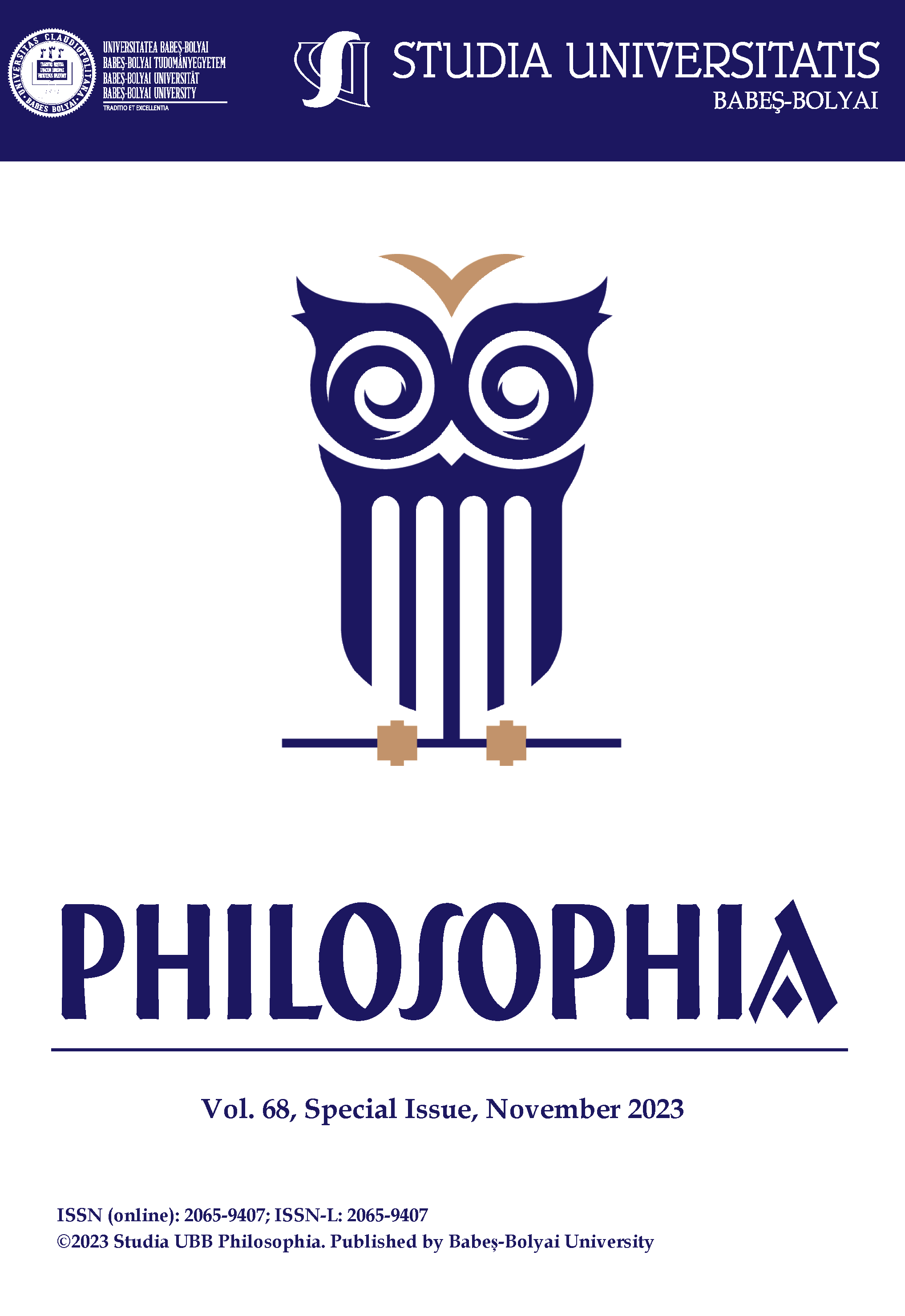The Joy of Knowledge Put Into Practice. The Cosmotechnical View on Acquiring Knowledge in Ancient China
DOI:
https://doi.org/10.24193/subbphil.2023.sp.iss.04Keywords:
China, philosophy, thought, knowledge, pragmatism, Confucianism, Daoism, legalism.Abstract
Classical Chinese thought slowly formed from the 9th century BCE onward through the Spring and Autumn era but reached its pivotal point during the so-called Warring States era (5th to 2nd centuries BCE). According to historical records, during these three hundred years more than four hundred wars of different scales raged across the Chinese world. These wars brought with them their own consequences like famines and abject poverty, terrible inequality and disillusionment. An intellectual history forming in these conditions understandably and inevitably was influenced by these conditions. In this context, the Hong Kong philosopher Yuk Hui presents his thesis of “cosmotechnics”, the view that merely understanding the world is not enough, it is paramount to change it for the betterment of people’s lives. This is the theoretical underpinning of much of classical Chinese thought, according to Yuk Hui, and therefore also for the drive to acquire knowledge. Thus, one unique aspect of classical Chinese thought is its interminable insistence on how man’s every action must have a reason beyond that action itself and any sort of philosophizing that does not lead to practice in changing the environment for the good of the people inhabiting it, is a wasted and useless thought. Therefore, there are a number of words and concepts related to the acquisition of knowledge in Classical and modern Chinese, like “learning” 學, “teaching” 教, “discussion” 論, “argumentation” 辯, and so on, but all these are encompassed within “the way” 道, specifically the “correct way of doing a thing”, i.e.: actual practice, rather than mere thought alone. I aim to present several examples of this from remote Chinese antiquity and classical Chinese thought within the framework of what I term “cosmotechnical joy” stemming from making people’s lives better.References
Rozália Klára Bakó (ed.) and Gizela Horváth (ed.): Argumentor 7: Error, Partium Press, Oradea, 2022.
Discourse on Salt and Iron: a debate on state control of commerce and industry in ancient China, University of California, Oakland, 1931.
Fuwei, Shen: Cultural flow between China and the outside world throughout history, Foreign Languages Press, Beijing, 2009.
Goldin, Paul R.: Those who don’t know speak - translations of the Laozi by people who do not know Chinese, in: Paul R. Goldin: After Confucius: Studies in Early Chinese Philosophy, University of Hawai’i, Honolulu, 2005.
Hanfeizi, The Commercial Press, Beijing, 2018.
Hui, Yuk: The questions concerning technology in China: an essay in cosmotechnics, Urbanomic, Falmouth, 2017.
Jichuang, Hu: A concise history of Chinese economic thought, Foreign Languages Press, Beijing, 2009.
Jinping, Xi: Governance of China II, Foreign Languages Press, Beijing, 2017.
Jiefu, Xiao and Jinquan, Li: An Outline History of Chinese Philosophy I & II, Foreign Language Teaching and Research Press, Beijing, 2008.
Kleeman, Terry F.: Celestial Masters History and Ritual in Early Daoist Communities, Harvard University Press, Cambridge, 2016.
Lao Tzu: Tao te Ching, Penguin Books, London, 2009.
Ping, Dong: Historical background of Wang Yangming’s philosophy of mind, Springer, NY, 2020.
Pines, Yuri: The Book of Lord Shang: Apologetics of State Power in Early China, Columbia University Press, NY, 2017.
Van Norden, Bryan W.: Taking back philosophy - a multicultural manifesto, Columbia University Press, NY, 2017.
The Book of Lord Shang, The Commercial Press, Beijing, 2006.
Tsit-Chan, Wing: Sourcebook in Chinese Philosophy, Princeton University Press, NJ, 1963.
Qichao, Liang: History of Chinese political thought, Kegan Paul, Trench, Trubner & Co, NY, 1930.
Qing, Jiang: A Confucian Constitutional Order: How China’s ancient past can shape its political future, Princeton University Press, Princeton China, Beijing, 2012.
Lu, Xing: Rhetoric in ancient China, fifth to third century, B.C.E.: a comparison with classical Greek rhetoric, University of South Carolina Press publishing, Columbia, 1998.
Youlan, Feng: A short history of Chinese philosophy, Foreign Language Teaching and Research Press, Beijing, 2015.
Yuanchong, Xu: Thus spoke the Master, China Intercontinental Press, Beijing, 2019.
Yuelin, Jin: Dao, Nature and Man, Foreign Language Teaching and Research Press, Beijing, 2019.
Zhuangzi, Foreign Languages Press, Beijing, 1999.
戴逸 (Dai Yi); 龔書鐸 (Gōng Shūduó) (2003). 中國通史. 史前 夏 商 西周 [History of China. Illustrated student edition], 智能敎育出版社, Xianggang, 2003.
Downloads
Published
How to Cite
Issue
Section
License
Copyright (c) 2023 Studia Universitatis Babeș-Bolyai Philosophia

This work is licensed under a Creative Commons Attribution-NonCommercial-NoDerivatives 4.0 International License.





